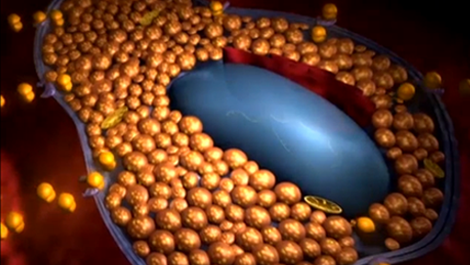Indication
NAGLAZYME® (galsulfase) is indicated for patients with mucopolysaccharidosis VI (MPS VI; Maroteaux-Lamy syndrome). NAGLAZYME has been shown to improve walking and stair-climbing capacity.
Important Safety Information
Severe and life-threatening allergic reactions can occur during NAGLAZYME infusions and up to 24 hours after infusion. Typical signs of an allergic reaction include shock, difficulty breathing, wheezing, swelling of the throat, and low blood pressure. If a severe allergic reaction occurs during infusion, the infusion should be stopped immediately, and you should receive medical attention. Contact your doctor or get medical help right away if you develop any severe symptoms after infusion.
In clinical trials, most patients developed antibodies to NAGLAZYME treatment. There was no clear relationship between antibody formation and the safety or effectiveness of NAGLAZYME.
Serious and severe infusion reactions are associated with NAGLAZYME, including hives, chest pain, rash, abdominal pain, difficulty breathing, swelling, fever, and eye irritation. You should receive medication such as antihistamines before NAGLAZYME infusions to reduce the risk of infusion reactions. If an infusion reaction occurs, the infusion should be slowed or stopped, and you may be given additional medication.
The most common side effects of NAGLAZYME seen in clinical trials were rash, pain, hives, fever, itching, chills, headache, nausea, vomiting, abdominal pain and difficulty breathing. The most common side effects requiring medical attention are infusion-related effects.
These are not all of the possible side effects with NAGLAZYME. Talk to your doctor if you have any symptoms that bother you or that do not go away.
NAGLAZYME is a prescription medicine. Before treatment with NAGLAZYME, it is important to discuss your medical history with your doctor. Tell your doctor if you are taking any medication and if you are allergic to any medicines. Your doctor will decide if NAGLAZYME is right for you. If you have questions or would like more information about NAGLAZYME, contact your doctor.
Spinal cord damage may occur due to the natural MPS VI disease process. Signs of spinal cord injury include back pain, loss of bladder and bowel control, numbness, and paralysis. Contact your doctor immediately if you develop any of these symptoms.
Call your doctor for medical advice about side effects. You may report side effects to BioMarin at 1-866-906-6100 and the FDA by visiting www.fda.gov/medwatch or calling 1-800-FDA-1088.
Please see full Prescribing Information.






